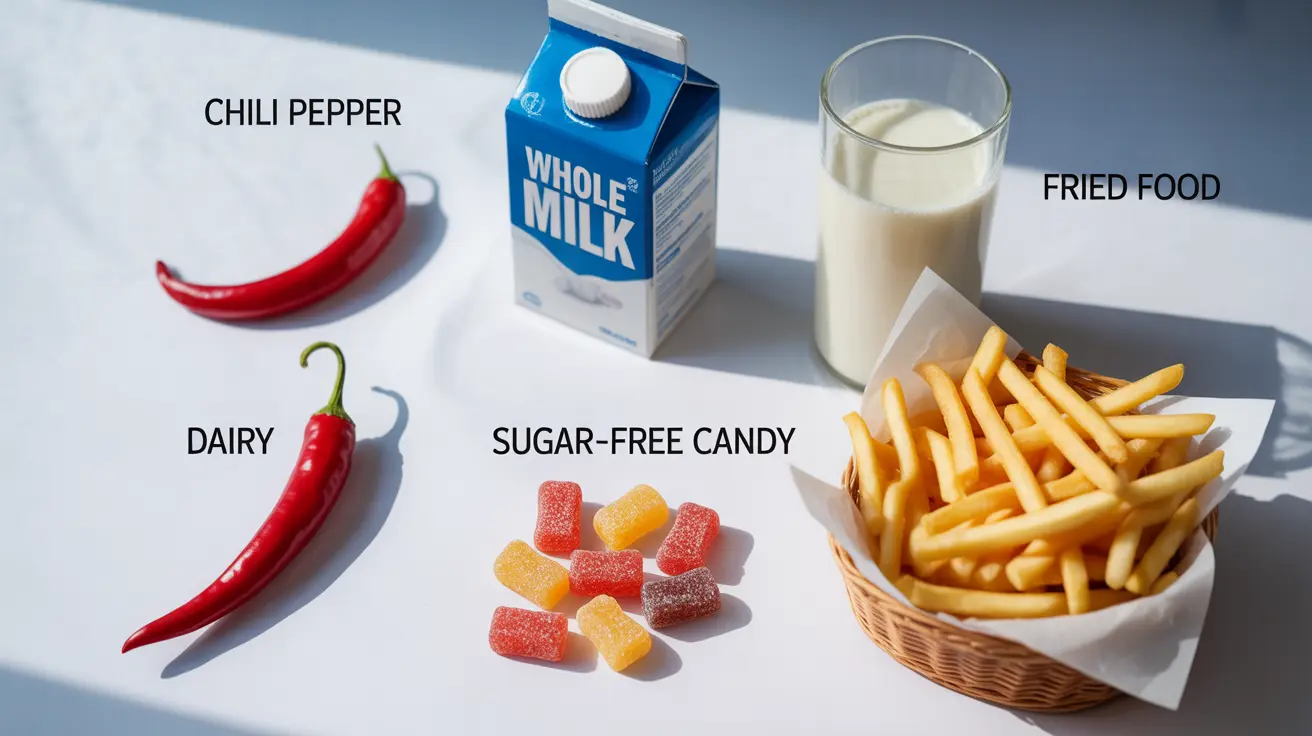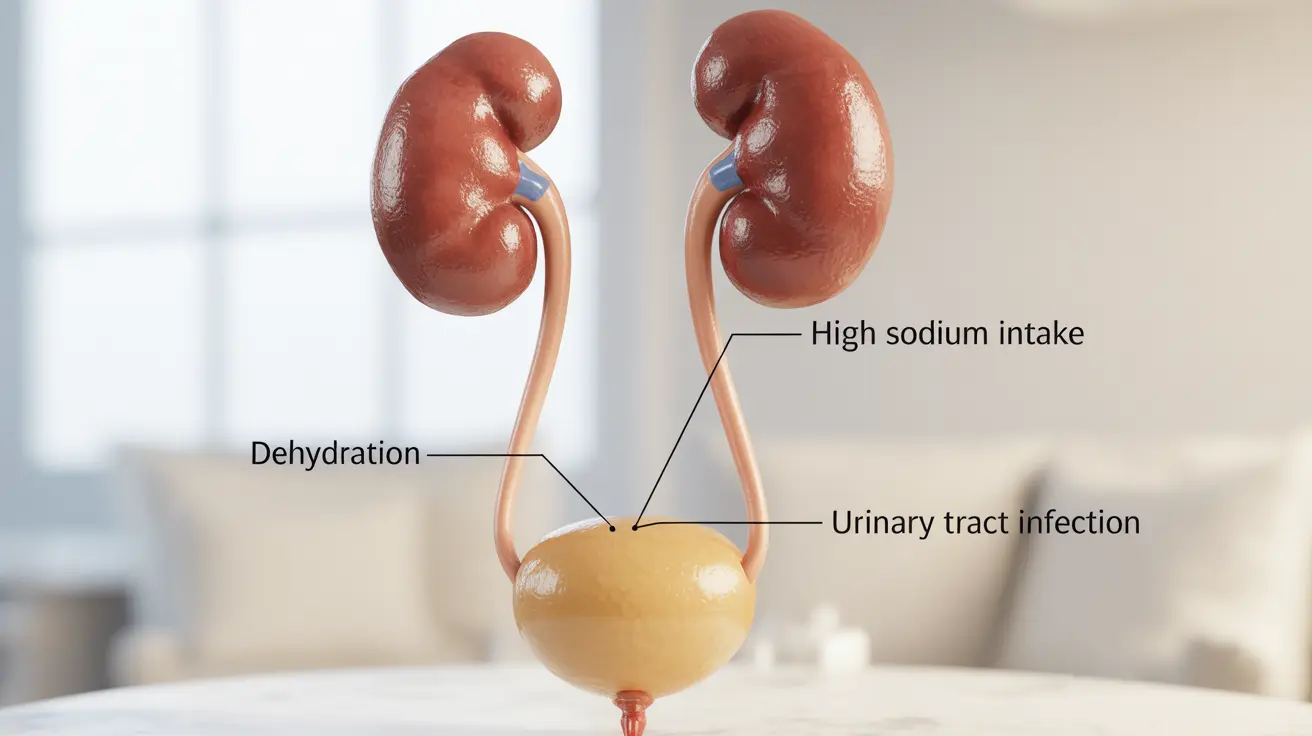Experiencing diarrhea after eating certain foods can be both uncomfortable and disruptive to daily life. While occasional loose stools are common, understanding which foods might trigger diarrhea can help you make informed dietary choices and maintain better digestive health.
This comprehensive guide explores common food triggers for diarrhea and provides practical strategies for managing dietary-related digestive issues while maintaining a balanced, enjoyable diet.
Common Food Triggers for Diarrhea
Spicy Foods and Hot Peppers
Spicy foods containing capsaicin can accelerate digestion and irritate the digestive tract. Common culprits include hot peppers, curry dishes, and foods seasoned with cayenne or other hot spices. While these foods don't cause harm to the digestive system, they can trigger a temporary increase in bowel movement frequency.
Dairy Products
Dairy products can cause diarrhea, particularly in individuals with lactose intolerance or sensitivity. Even those without diagnosed lactose intolerance might experience occasional digestive issues with high-dairy meals. Common triggering foods include milk, ice cream, and soft cheeses.
Artificial Sweeteners and Sugar Alcohols
Sugar substitutes, especially sugar alcohols like sorbitol, xylitol, and mannitol, can have a laxative effect. These are commonly found in sugar-free candies, gum, and diet beverages. The body cannot fully digest these substances, leading to osmotic diarrhea in some individuals.
High-Risk Food Categories
Fatty and Fried Foods
Foods high in fat content can be difficult to digest and may cause diarrhea. This includes:
- Deep-fried foods
- Greasy fast food
- Foods high in saturated fats
- Processed meats
Certain Fruits and Vegetables
Some fruits and vegetables can trigger diarrhea due to their natural sugar content or fiber levels:
- Fruits high in fructose
- Stone fruits like cherries and peaches
- Cruciferous vegetables
- Raw vegetables in large quantities
Prevention and Management Strategies
Dietary Modifications
To reduce the risk of food-related diarrhea:
- Keep a food diary to identify triggers
- Introduce new foods gradually
- Practice portion control
- Choose whole, unprocessed foods when possible
Safe Food Preparation
Proper food handling and preparation can prevent bacterial causes of diarrhea:
- Cook foods thoroughly
- Store foods at appropriate temperatures
- Practice good kitchen hygiene
- Avoid cross-contamination
Frequently Asked Questions
What are some common foods that can trigger diarrhea in healthy individuals?
Common trigger foods include spicy dishes, dairy products, artificial sweeteners, fried foods, and certain fruits high in fructose. Additionally, coffee, alcohol, and foods high in sugar can stimulate bowel movements in sensitive individuals.
How can I manage diarrhea caused by spicy foods without completely avoiding them?
Start with smaller portions of spicy foods and gradually build tolerance. Eating them with dairy-based foods or starches can help reduce their impact. Also, consider taking probiotics regularly and eating spicy foods with meals rather than on an empty stomach.
Is it safe to consume dairy products if I have occasional diarrhea but no known lactose intolerance?
Yes, but it's best to start with small amounts and observe your body's response. Consider trying low-lactose dairy products or taking lactase enzymes before consuming dairy. Fermented dairy products like yogurt are often better tolerated.
What are some sugar substitutes that are less likely to cause diarrhea compared to others like sorbitol?
Natural sweeteners like stevia and monk fruit are less likely to cause digestive issues compared to sugar alcohols. Regular table sugar (sucrose) and artificial sweeteners like aspartame and sucralose are also less likely to cause diarrhea than sugar alcohols.
How can I reduce the risk of diarrhea by adjusting my diet and what foods should I prioritize?
Focus on easily digestible foods like bananas, rice, toast, and lean proteins. Incorporate probiotics through yogurt or supplements, stay hydrated, and eat regular, balanced meals. Avoid known trigger foods and maintain proper food safety practices.




